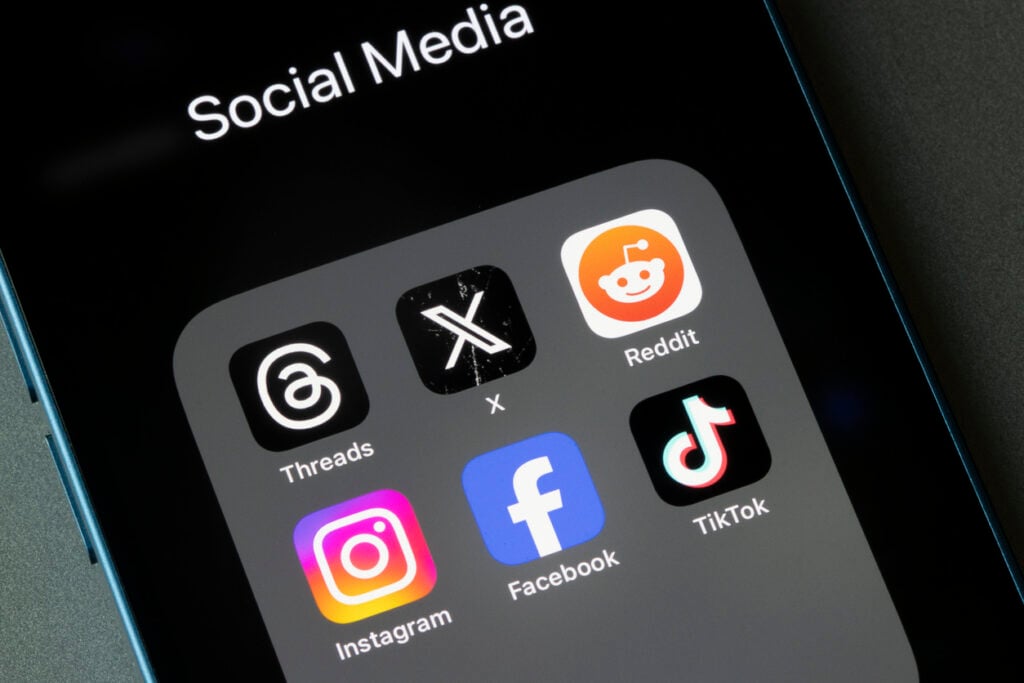The values we once held sacred are fading fast—these 13 signs prove integrity isn’t what it used to be.

Remember when a handshake actually meant something? These days, promises are broken as easily as they’re made, and doing the right thing often takes a backseat to doing what’s convenient. It’s not just about a few bad apples—something bigger is happening. Integrity, once a core value, is quietly slipping away, replaced by a culture of shortcuts, excuses, and self-interest.
People used to take pride in honesty and accountability. Now, bending the truth, dodging responsibility, and chasing personal gain seem more acceptable than ever. Some call it progress, others call it moral decay, but one thing is clear: society’s standards have shifted. The signs are all around, woven into daily interactions, business practices, and even relationships. If it feels like people care less about doing what’s right, it’s because, in many cases, they actually do.
1. Lying has become the norm, and nobody seems to care.

Once upon a time, honesty was the foundation of trust. Now, it feels like lying is just part of everyday life. People twist the truth to get ahead, politicians make false promises without consequences, says Charles M. Sennott with the Groundtruth Project, and social media is filled with fake personas pretending to live perfect lives.
What used to be called deception is now just “bending the truth” or “spinning the narrative.” Even small lies—excuses for missing a meeting, tweaking a résumé, faking an online persona—are so common that they barely raise an eyebrow. The worst part? Many people don’t even feel guilty about it anymore.
2. Accountability is dead—blaming others is the new trend.

Nobody wants to admit they’re wrong anymore. Instead of owning up to mistakes, people blame their boss, their upbringing, the system, or bad luck. Personal responsibility is fading fast, replaced by a culture of pointing fingers and making excuses, according to Adrienne Hardwick writing for Oxford Review. Politicians refuse to take the blame for failed policies, corporations shift responsibility onto employees, and in everyday life, people dodge consequences however they can.
This isn’t just frustrating—it’s dangerous. When no one takes accountability, problems never get solved. If integrity means doing the right thing, even when it’s uncomfortable, then what does it say about society when most people are more focused on avoiding blame than actually making things right? Admitting fault used to be a sign of strength. Now, it’s treated like a weakness.
3. People will do anything for money, even if it’s unethical.

The line between ambition and greed has never been thinner. Businesses cut corners to boost profits, influencers push scams to make a quick buck, and everyday people prioritize personal gain over ethics without a second thought, remind Clinton Longenecker and James W. Shufelt writing for the National Defense University Press.
What used to be considered shady is now just “hustling” or “playing the game.” Selling out isn’t an insult anymore—it’s a goal. Integrity used to mean standing by your values, even when money was involved. Now, if there’s a financial incentive, many will look the other way. Companies exploit workers, friends betray each other over business deals, and scams are so common they barely shock anyone.
If success comes at the cost of honesty and fairness, is it really success? At some point, chasing profit at any cost starts costing more than it’s worth.
4. Social media has made deception and fake personas socially acceptable.

People aren’t just lying in person—they’re curating entire fake realities online, say Dr. Vivek S Kanade and Rajeshri P Lasurkar in their research published in the International Journal of Humanities and Social Science. Filters erase imperfections, highlight reels replace real life, and influencers fabricate perfect lifestyles that don’t actually exist. It’s no longer about being authentic; it’s about being marketable. The worst part? Nobody seems to mind. Instead of valuing honesty, society rewards those who can sell the most convincing illusion.
This constant flood of fakeness leads to impossible standards, self-doubt, and a world where people trust appearances more than reality. If integrity means being truthful about who we are, then what happens when everyone is pretending? When honesty takes a backseat to digital perfection, people lose the ability to connect in a real, meaningful way. The scariest part? Many no longer see the problem.
5. Respect for others has been replaced by entitlement.

Basic courtesy used to be a given. Holding doors open, saying thank you, and treating others with kindness were once common values. Now, entitlement has taken over. Instead of appreciating what they have, many expect more and more—without effort, without gratitude, and without respect. Customer service workers get screamed at, drivers refuse to yield, and online arguments escalate into personal attacks at lightning speed.
The mindset has shifted from “How can I contribute?” to “What do I deserve?” It’s one thing to stand up for yourself, but it’s another to walk through life acting like the world owes you something. When entitlement replaces respect, relationships, workplaces, and communities start breaking down. A society without mutual respect is a society on the verge of collapse.
6. Loyalty means nothing when people see a better opportunity.

Loyalty—whether in friendships, business, or relationships—used to mean standing by someone through thick and thin. Now, it seems like people are always keeping an eye out for something better.
Companies toss aside employees who’ve been loyal for decades, friends disappear the moment you’re no longer useful, and relationships fall apart because someone thinks they can “trade up.” Integrity means sticking to your word, honoring commitments, and valuing people for more than just what they can offer in the moment.
But in a world where instant gratification rules, loyalty is often treated as disposable. The moment something better comes along, too many people jump ship without a second thought. When commitment is seen as an inconvenience rather than a virtue, trust becomes nearly impossible.
7. Cheating isn’t just common—it’s expected.

Cheating used to be a shameful secret. Now, in many areas of life, it’s almost expected. Students use AI to do their homework, athletes use performance enhancers, and people cheat in relationships with barely a second thought. What used to be considered dishonest is now often brushed off as a necessary shortcut. “Everyone does it” has become the go-to excuse, but that doesn’t make it right.
Integrity is about doing what’s right even when no one is watching, but when everyone is cutting corners, it becomes easier to justify doing the same. When honesty no longer matters, trust disappears. And when trust disappears, society becomes a place where nobody can rely on anyone else. That’s not just a minor shift—it’s a recipe for disaster.
8. Fame and attention matter more than doing good.

It used to be that people were respected for their character, their contributions, or their work ethic. Now, society values attention over integrity. Likes, shares, and viral moments have replaced real achievement, and people will do just about anything to stay in the spotlight.
Outrage, drama, and shock tactics get more engagement than kindness or wisdom. Instead of rewarding those who do the right thing, we idolize those who create the biggest spectacle. The obsession with being noticed has led people to fake personal tragedies, exaggerate success, and stir up controversy just to stay relevant.
In a world where recognition matters more than doing what’s right, moral values are traded for fleeting internet fame. If integrity doesn’t sell, too many people are willing to leave it behind for a few moments of attention.
9. Promises are made but rarely kept anymore.

A promise is often just words rather than something you honor, no matter what. Whether it’s personal commitments, business agreements, or political promises, people say what’s convenient in the moment but rarely follow through. Excuses like “I got busy” or “Things changed” have become acceptable ways to justify breaking commitments. Even wedding vows, once considered sacred, are now seen as optional when things get tough.
The result? A society where trust is fragile and words carry little weight. If people don’t believe that promises will be kept, relationships suffer, businesses collapse, and communities weaken. Integrity means following through on what you say, even when it’s inconvenient. When people no longer feel obligated to honor their commitments, trust erodes, and society loses one of its most fundamental building blocks.
10. Apologies have become meaningless because no one changes.

Saying “I’m sorry” used to mean something—it was a promise to do better. Now, apologies are often empty words spoken just to escape consequences. Public figures, celebrities, and even everyday people issue insincere apologies just to smooth things over, only to repeat the same behavior.
Instead of genuine remorse, we get carefully crafted statements that deflect blame rather than take responsibility. Worse, some people believe that just saying sorry is enough, without making any effort to change. Integrity means owning mistakes, learning from them, and making things right. When apologies become nothing more than damage control, they lose their meaning.
If people stop believing in the sincerity of apologies, the ability to rebuild trust disappears, and accountability becomes just another outdated concept.
11. Right and wrong now depend on convenience.

Once, morality was about doing what’s right, even when it was difficult. Now, right and wrong often shift based on what’s easiest in the moment. If telling the truth will cause trouble, people choose to lie. If standing up for someone might invite criticism, they stay silent. If cutting corners means getting ahead, integrity takes a backseat.
The idea of having firm principles has been replaced by “doing whatever works.” This shift is everywhere—corporations make unethical choices to boost profits, individuals betray friends when it benefits them, and people turn a blind eye to injustice when speaking up might cost them something. When morality becomes flexible based on convenience, society loses the ability to function on trust and fairness. Doing the right thing shouldn’t be optional, but more and more, it feels like it is.
12. We celebrate bad behavior instead of condemning it.

Somewhere along the way, we stopped discouraging toxic behavior and started rewarding it. Arrogance, cruelty, and manipulation used to be seen as flaws—now they’re often admired. Reality TV glorifies backstabbing, social media rewards those who create controversy, and influencers gain massive followings by stirring up drama.
Instead of rejecting dishonesty or selfishness, people excuse it if it’s entertaining or profitable. Integrity used to mean standing against harmful behavior, even when it was popular. Now, bad behavior is often met with applause instead of accountability.
13. Integrity is treated as outdated instead of essential.

Doing the right thing, even when no one is watching, was once a respected trait. Now, it’s often seen as naïve, impractical, or even foolish. People who stick to their principles are sometimes mocked for not “playing the game” or keeping up with modern realities.
Honesty is considered rigid, loyalty is seen as unnecessary, and ethical decision-making is often dismissed as unrealistic in a world where shortcuts and deception are rewarded. When integrity is devalued, those who uphold it feel isolated, while those who abandon it thrive. But a society without integrity is a society built on distrust, where people expect to be deceived and assume the worst in others.
